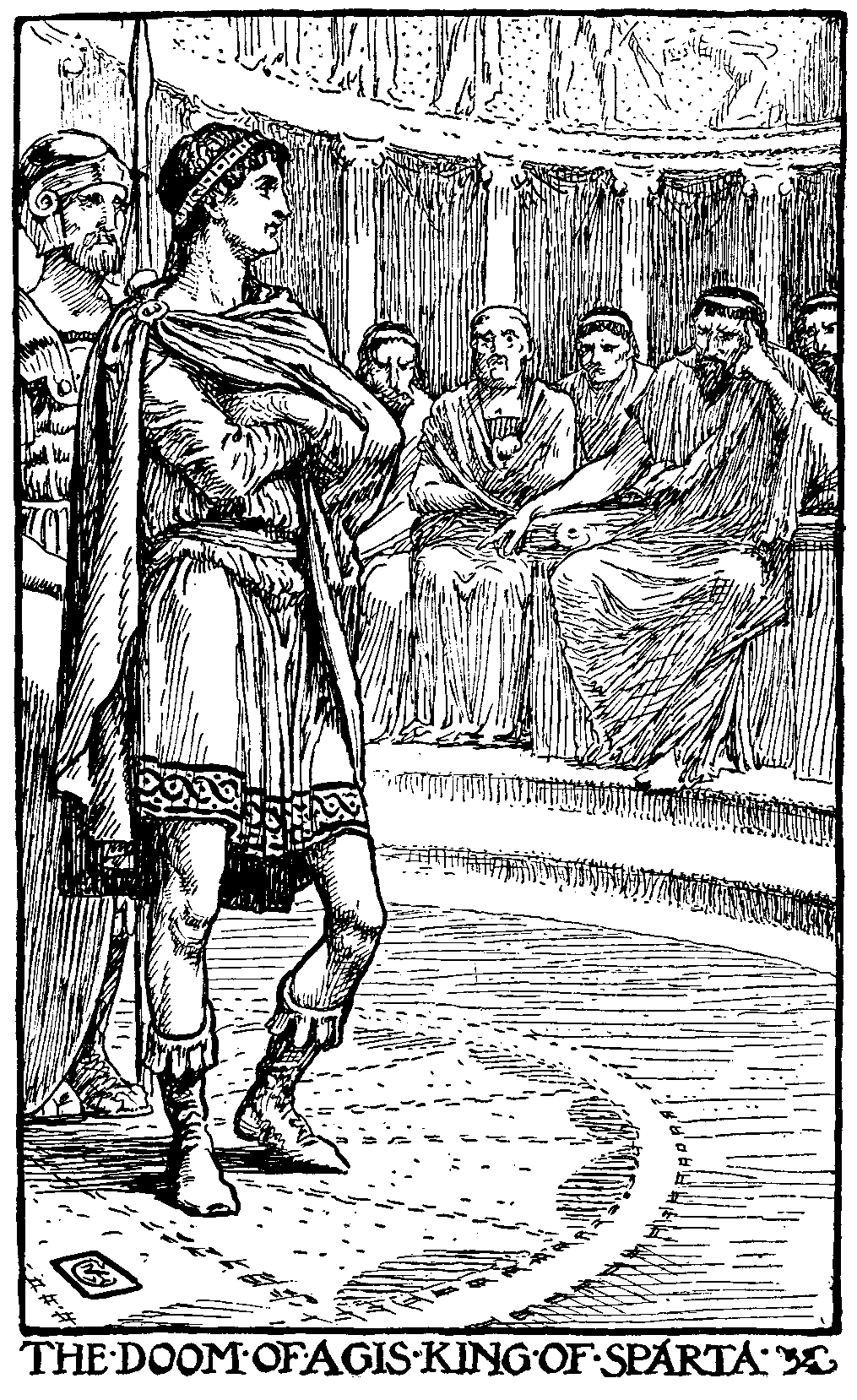|
Mandrocleides
Mandrocleides was an influential follower of Agis IV of Sparta's reforms re-establishing the institutions of Lycurgus Lycurgus or Lykourgos () may refer to: People * Lycurgus (king of Sparta) (third century BC) * Lycurgus (lawgiver) (eighth century BC), creator of constitution of Sparta * Lycurgus of Athens (fourth century BC), one of the 'ten notable orators' ... in the 3rd century BC. 3rd-century BC Spartans {{AncientGreece-bio-stub ... [...More Info...] [...Related Items...] OR: [Wikipedia] [Google] [Baidu] |
Agis IV
Agis IV ( grc-gre, Ἄγις; c. 265 BC – 241 BC), the elder son of Eudamidas II, was the 25th king of the Eurypontid dynasty of Sparta. Posterity has reckoned him an idealistic but impractical monarch. Family background and accession Agis was the son of Eudamidas II () and grandson of Archidamus IV (), who belonged to the Eurypontid dynasty, one of the two royal families of Sparta (the other being the Agiads). The reign of Agis marks a re-emergence of the Eurypontids, who had disappeared from the records since the defeat of Archidamus IV against Demetrios Polyorketes in 294. His father is indeed the most obscure of all the Spartan kings, perhaps due to a mental or physical disability. Eudamidas II's dates of reign are therefore very conjectural. The traditional year of his death is c.245, but he may have died earlier (up to 263), in which case a regent was appointed during Agis' minority, as he was born c.265. The most likely candidate is his uncle Agesilaus, who played a ... [...More Info...] [...Related Items...] OR: [Wikipedia] [Google] [Baidu] |
Sparta
Sparta ( Doric Greek: Σπάρτα, ''Spártā''; Attic Greek: Σπάρτη, ''Spártē'') was a prominent city-state in Laconia, in ancient Greece. In antiquity, the city-state was known as Lacedaemon (, ), while the name Sparta referred to its main settlement on the banks of the Eurotas River in Laconia, in south-eastern Peloponnese. Around 650 BC, it rose to become the dominant military land-power in ancient Greece. Given its military pre-eminence, Sparta was recognized as the leading force of the unified Greek military during the Greco-Persian Wars, in rivalry with the rising naval power of Athens. Sparta was the principal enemy of Athens during the Peloponnesian War (431–404 BC), from which it emerged victorious after the Battle of Aegospotami. The decisive Battle of Leuctra in 371 BC ended the Spartan hegemony, although the city-state maintained its political independence until its forced integration into the Achaean League in 192 BC. The city nevertheless ... [...More Info...] [...Related Items...] OR: [Wikipedia] [Google] [Baidu] |
Lycurgus Of Sparta
Lycurgus (; grc-gre, Λυκοῦργος ; 820 BC) was the quasi-legendary lawgiver of Sparta who established the military-oriented reformation of Spartan society in accordance with the Oracle of Apollo at Delphi. All his reforms promoted the three Spartan virtues: equality (among citizens), military fitness, and austerity.Forrest, W.G. ''A History of Sparta 950–192 B.C.'' Norton. New York. (1963) p. 50 He is referred to by ancient historians and philosophers Herodotus, Xenophon, Plato, Polybius, Plutarch, and Epictetus. It is not clear if Lycurgus was an actual historical figure; however, many ancient historians believed that he instituted the communalistic and militaristic reforms – most notably the Great Rhetra – which transformed Spartan society. Biography Early life Most information about Lycurgus comes from Plutarch's "Life of Lycurgus" (part of ''Parallel Lives''), which is more of an anecdotal collection than a real biography. Plutarch himself remarks th ... [...More Info...] [...Related Items...] OR: [Wikipedia] [Google] [Baidu] |


